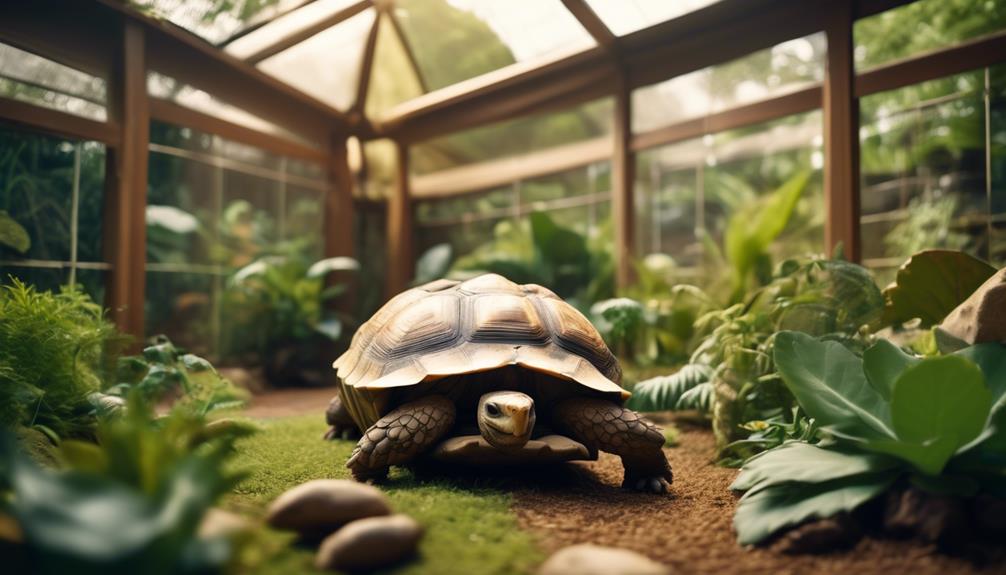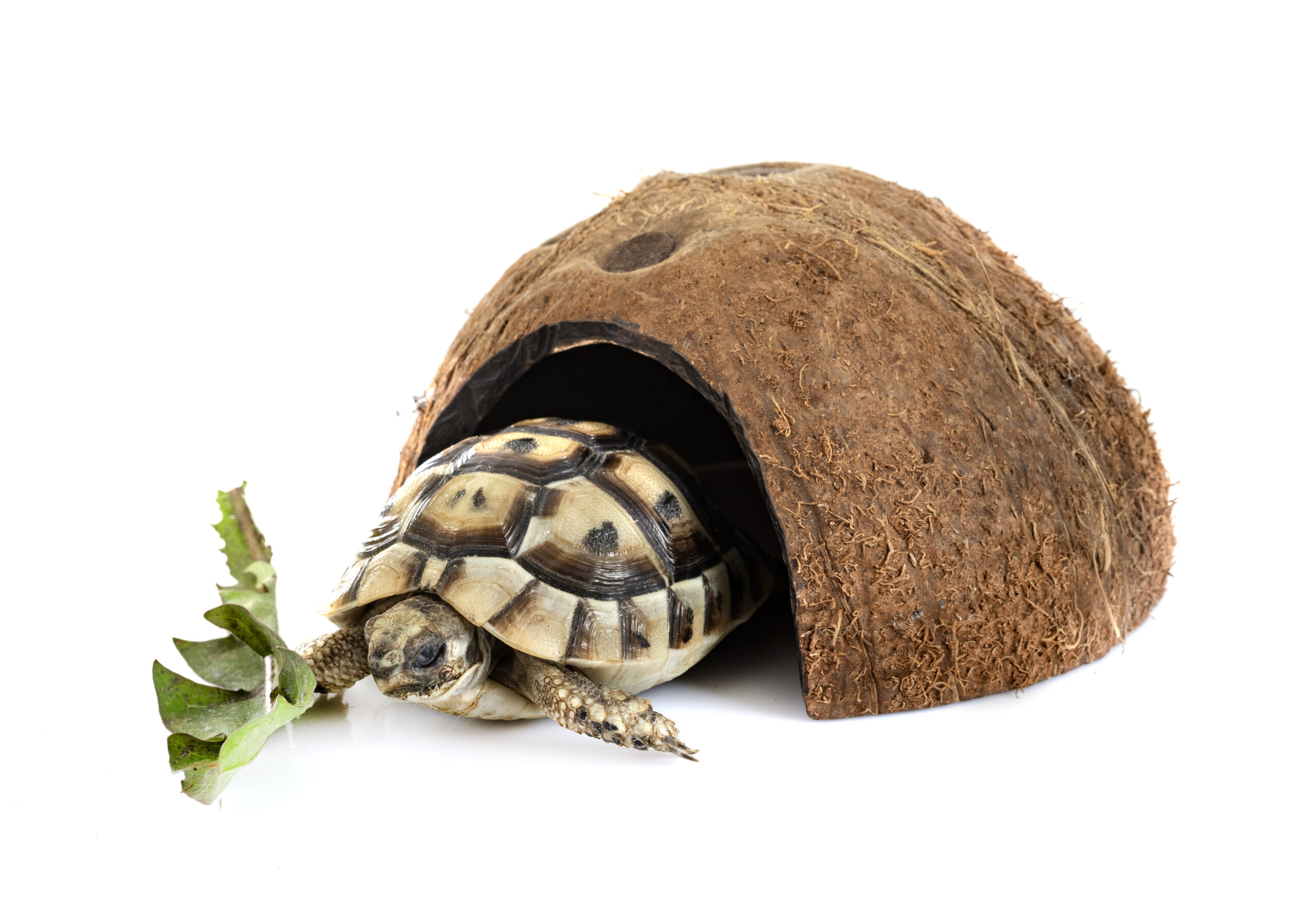Have you ever wondered how long tortoises can live? Well, get ready to be amazed! These incredible creatures have lifespans that can stretch over 50 years, and some species even reach a staggering 150 years or more. It’s truly remarkable! But here’s the thing: their longevity depends on several factors like genetics, size, and the care they receive. So, if you want your tortoise to live a long and happy life, it’s essential to provide them with proper care and attention. Let’s dive into the fascinating world of tortoise lifespans together!
What is a tortoise?
A tortoise is a land-dwelling species that belongs to the order Testudines and has a shell developed from its ribs. If you’re wondering how long do tortoises live, well, it varies depending on the species. Tortoises have an impressive lifespan, with some living for over 150 years! The average lifespan of a tortoise is typically over 50 years. In fact, there are records of some tortoises living beyond the age of 100. So how do tortoises live so long? Well, their slow metabolism and ability to adapt to harsh environments contribute to their longevity. Additionally, proper care and nutrition play a crucial role in their extended lifespan.
When it comes to the longest living tortoise breed, the Seychelles giant tortoise takes the crown. Jonathan, one such giant tortoise from Seychelles, holds the record as the oldest known living tortoise at an astounding 190 years old!
These remarkable creatures have captured our fascination with their long lives and unique characteristics.
Lifespan and characteristics
Most tortoise species have a lifespan of over 50 years, with some living for more than 150 years. These incredible creatures can live for many decades, making them long-term companions if properly cared for. The lifespan of a tortoise is influenced by various factors such as genetics, diet, and environmental conditions.
To give you a better understanding of the different lifespans among tortoises, here is a table showcasing the average lifespan of some popular tortoise species:
| Tortoise Species | Lifespan Range |
|---|---|
| Galapagos Tortoise | 100-150 years |
| Aldabra Tortoise | 80-120 years |
| Sulcata Tortoise | 70-100 years |
| Russian Tortoise | 40-60 years |

It’s important to note that these lifespans are averages and individual tortoises may live shorter or longer lives depending on their specific circumstances. Factors such as proper nutrition, habitat maintenance, and veterinary care play crucial roles in ensuring the longevity of your pet tortoise.
A pet tortoise can be a lifelong companion, as they have a lifespan of many decades. Before getting one, you should be aware of the responsibility and dedication required to care for them. It’s not uncommon for pet tortoises to outlive their owners if well-cared-for. So make sure you’re ready to provide lifelong care and attention to these fascinating creatures!
Factors affecting lifespan
Various factors affect the lifespan of a tortoise, including genetics, diet, and environmental conditions. You may wonder, “How long do tortoises live?”. Well, the answer varies depending on the species. On average, tortoises can live anywhere from 50 to 150 years with proper care. Some individuals have even been known to reach over 200 years old!
Genetics play a significant role in determining the lifespan of a tortoise. Some breeds are naturally longer-lived than others. For example, the Aldabra giant tortoise holds the record for being one of the longest-living tortoise breeds.
Another crucial factor is diet. A well-balanced and nutritious diet is essential for maintaining good health and extending their lifespan. Tortoises are herbivores, so they require a plant-based diet consisting of grasses, leafy greens, and vegetables.
Environmental conditions also play a vital role in their longevity. Tortoises thrive in specific habitats that provide them with adequate shelter and temperature regulation.
Overall, providing your pet tortoise with proper care and attention can significantly increase their lifespan. So if you’re considering getting a pet tortoise, be prepared for a long-term commitment as these incredible creatures can live for many decades!
Sexual maturity and reproduction
To determine if your tortoise has reached sexual maturity, you can observe their size rather than their age. Unlike humans, who reach sexual maturity at a certain age, tortoises’ growth rate depends on various factors such as diet and care. Here are five key points to consider regarding the sexual maturity and reproduction of tortoises:
- Tortoises reach sexual maturity at different ages depending on the species. Some may become sexually mature as early as 5 years old, while others may take up to 20 years.
- The average lifespan of a pet tortoise can range from 50 to over 100 years, so it is essential to provide long-term care for these fascinating creatures.
- The life span of a tortoise largely depends on its species and the quality of care it receives throughout its life.
- Tortoises can live in various habitats around the world, including deserts, grasslands, savannas, and forests.
- Among the different species of tortoises, some of the longest-lived include Galapagos giant tortoises and Aldabra giant tortoises.
Understanding when your tortoise reaches sexual maturity is crucial for proper breeding management. By observing their size and considering other factors like species and care provided, you can ensure that your pet tortoise has a healthy reproductive life.
Common care-related illnesses
When caring for your tortoise, it’s important to be aware of common illnesses that can affect them. One of the questions you may have is, “How long do tortoises live?” Well, the lifespan of a tortoise can vary depending on the species and proper care. On average, most tortoises can live over 50 years with proper care, but some species have been known to live over 150 years! However, there are certain care-related illnesses that can shorten their lifespan if not addressed properly.
Some common care-related illnesses in tortoises include vitamin deficiencies, respiratory infections, shell rot, and parasites. Vitamin deficiencies can occur if your tortoise doesn’t receive a balanced diet or enough exposure to sunlight or UVB lighting. Respiratory infections can be caused by poor husbandry practices or inadequate housing conditions. Shell rot is a fungal infection that affects the shell and is often caused by unclean living environments. Parasites such as worms or mites can also affect their health.
To prevent these illnesses and ensure the longevity of your tortoise’s life, it’s important to provide them with appropriate nutrition, clean habitats, proper temperature and humidity levels, regular veterinary check-ups, and quarantine new additions to their environment. By being aware of these common illnesses and taking proactive steps towards prevention and treatment when necessary, you can help ensure a long and healthy life for your beloved tortoise companion.
Improving lifespan through proper care
Proper care, including providing appropriate nutrition and maintaining clean habitats, can contribute to improving the lifespan of tortoises. When it comes to how long do tortoises live, the average lifespan of a turtle can vary depending on the species and their specific care needs. Pet turtle lifespan can range from 10 years to over 100 years. Giant tortoises have been known to live for well over a century, with some individuals reaching ages of 150 years or more. On the other hand, small turtles as pets tend to have shorter lifespans, typically living around 10-20 years.
It’s important to note that different species of tortoises have different lifespans. For example, miniature turtles and little turtles may only live for about 30-40 years. However, with proper care and attention to their needs, you can help maximize their longevity.
To ensure your pet turtle lives a long and healthy life, provide them with a balanced diet that meets their specific dietary requirements. Additionally, keep their habitat clean and properly maintained to prevent illness or infection. Regular check-ups with a reptile veterinarian are also essential for monitoring their health and catching any potential issues early on.
Housing and environmental requirements
For the health and well-being of your tortoise, it’s crucial to provide them with a spacious and suitable habitat that includes areas for basking, swimming, and hiding. The lifespan of tortoises can vary greatly depending on the species. Some tortoises can live for over 100 years, while others may only live for 20-30 years. Providing proper housing and environmental requirements is essential in ensuring their longevity.
When it comes to housing, tortoises need a large enclosure that allows them to move around freely. The size of the enclosure should be proportional to the size of the tortoise. It should also have a secure fence or walls to prevent escape and protect them from predators.
In terms of environmental requirements, tortoises need access to both a basking area and water. The basking area should have a heat source such as a heat lamp or heating pad, allowing them to regulate their body temperature effectively. The water area should be shallow enough for them to easily access and swim in.
Additionally, providing hiding spots such as rocks or logs is important as they allow the tortoise to feel safe and secure. They also mimic their natural environment where they can retreat when feeling stressed or threatened.
Overall, creating an ideal habitat with ample space, proper temperature regulation, access to water, and hiding spots will contribute significantly to the overall well-being and lifespan of your beloved pet tortoise.
Veterinary care and enrichment
Regular veterinary care is important for the health and well-being of tortoises as it allows for early detection and prevention of potential illnesses. By scheduling regular check-ups with a reptile veterinarian, you can ensure that your tortoise receives the necessary medical attention to live a long and healthy life. In addition to veterinary care, providing enrichment for your tortoise is crucial for their overall well-being.
Enrichment activities help stimulate their natural behaviors and prevent boredom. This can include offering a variety of foods, treats, and toys that encourage exploration and mental stimulation. Foraging activities, such as hiding food in different areas of their enclosure, can also provide mental and physical stimulation.
To make it easier to understand the importance of veterinary care and enrichment for tortoises, here is a table summarizing these key points:
| Veterinary Care | Enrichment |
|---|---|
| Regular check-ups with a reptile veterinarian | Offering a variety of foods, treats, and toys |
| Early detection and prevention of potential illnesses | Foraging activities to stimulate natural behaviors |
| Monitoring internal organ function through bloodwork | Mental and physical stimulation to prevent boredom |
Different tortoise breeds and care
When choosing a tortoise breed, it’s important to consider the specific care requirements and characteristics of each breed. Different tortoise breeds have varying lifespans, so understanding how long they live is crucial in making an informed decision. Some tortoises can live for several decades, while others can live over a century with proper care.
The lifespan of a tortoise depends on factors such as genetics, diet, habitat, and overall care. For example, the Galapagos tortoise is known for its impressive longevity, with some individuals living well beyond 100 years. On the other hand, smaller species like the Russian tortoise generally have a shorter lifespan of around 40-50 years.
In addition to lifespan considerations, different tortoise breeds require specific care to thrive. For instance, Mediterranean tortoises like the Greek or Hermann’s tortoise need ample space for exercise and UVB lighting for proper calcium metabolism. The sulcata (African spurred) tortoise requires a large outdoor enclosure to meet its substantial size needs.
Tortoise diet and nutrition
Tortoises need a balanced diet consisting of vegetables to meet their nutritional needs. A proper diet is essential for their health and longevity. Here are some key points about tortoise diet and nutrition:
- Variety is important: Tortoises should be fed a variety of leafy greens, such as dandelion greens, collard greens, and kale. These provide essential vitamins and minerals.
- Avoid high-protein foods: Tortoises are herbivores and should not be fed meat or animal-based products. High protein foods can lead to health issues in tortoises.
- Calcium supplementation: Tortoises require calcium for healthy shell development and muscle function. It’s important to provide calcium supplements, either through cuttlebone or powdered calcium added to their food.
- Monitor portion sizes: While it’s crucial to offer a varied diet, it’s also important not to overfeed your tortoise. Portion control is necessary to prevent obesity and associated health problems.
Frequently Asked Questions
How do tortoises differ from turtles?
Tortoises differ from turtles in several ways. While both belong to the Testudines order and have shells, tortoises are land-dwelling species, while turtles are adapted for aquatic environments. Tortoises also have feet with sturdy, elephant-like legs made for walking on land, while turtles have webbed feet for swimming. Additionally, tortoises typically have domed shells and can retract their heads and limbs completely inside their shell, unlike most turtles.
What are some common health issues that can affect tortoises?
Some common health issues that can affect tortoises include vitamin deficiencies, respiratory infections, shell problems, and parasites. Vitamin deficiencies, particularly of vitamin A and calcium, are common in captive tortoises and can lead to a variety of health problems. Respiratory infections can occur if the tortoise’s enclosure is not kept clean or if the temperature and humidity levels are not properly maintained. Shell problems such as pyramiding or softening can be caused by improper diet or environmental conditions. Parasites such as worms and mites can also affect tortoises if they are not regularly dewormed or treated for external parasites.
How can I improve the lifespan of my pet tortoise?
To improve the lifespan of your pet tortoise, there are several key factors to consider. First and foremost, provide a proper diet consisting of fresh vegetables and limited fruits. Create a suitable habitat with ample space for them to roam and bask in natural sunlight or under heat lamps. Keep their enclosure clean and maintain good hygiene practices to prevent diseases. Regular veterinary check-ups are essential for early detection of any health issues. Finally, minimize stress by creating a calm and safe environment for your tortoise.
Can tortoises be kept in a regular fish tank as a habitat?
No, tortoises cannot be kept in a regular fish tank as their habitat. Tortoises require specific housing and environmental conditions to thrive. They need a large area for movement, basking, and burrowing. Tank water is not suitable for them, as they are land-dwelling species. Additionally, tortoises need access to natural sunlight or UV lighting for proper calcium metabolism. Providing the right habitat and environment is essential for the health and well-being of your pet tortoise.
What are some enrichment activities I can provide for my tortoise?
To provide enrichment activities for your tortoise, you can incorporate natural elements into their habitat. Create a digging area with soil or sand where they can burrow and explore. Offer various textures like rocks, logs, and branches for them to climb on. Additionally, provide puzzle feeders or hide treats around their enclosure to encourage foraging behavior. Remember, these activities not only stimulate your tortoise’s mind but also promote their overall well-being.
How Long Do Tortoises Live? Conclusion
Congratulations on reaching the end! You’ve learned that tortoises are incredible creatures with varying lifespans. By providing them with proper care, including a balanced diet and a clean environment, you can help them live their best lives. Remember, these amazing reptiles thrive when they receive regular veterinary care and enrichment activities. So, get ready to embark on a journey of fulfilling their specific needs and watch your tortoise companion flourish for many years to come!







